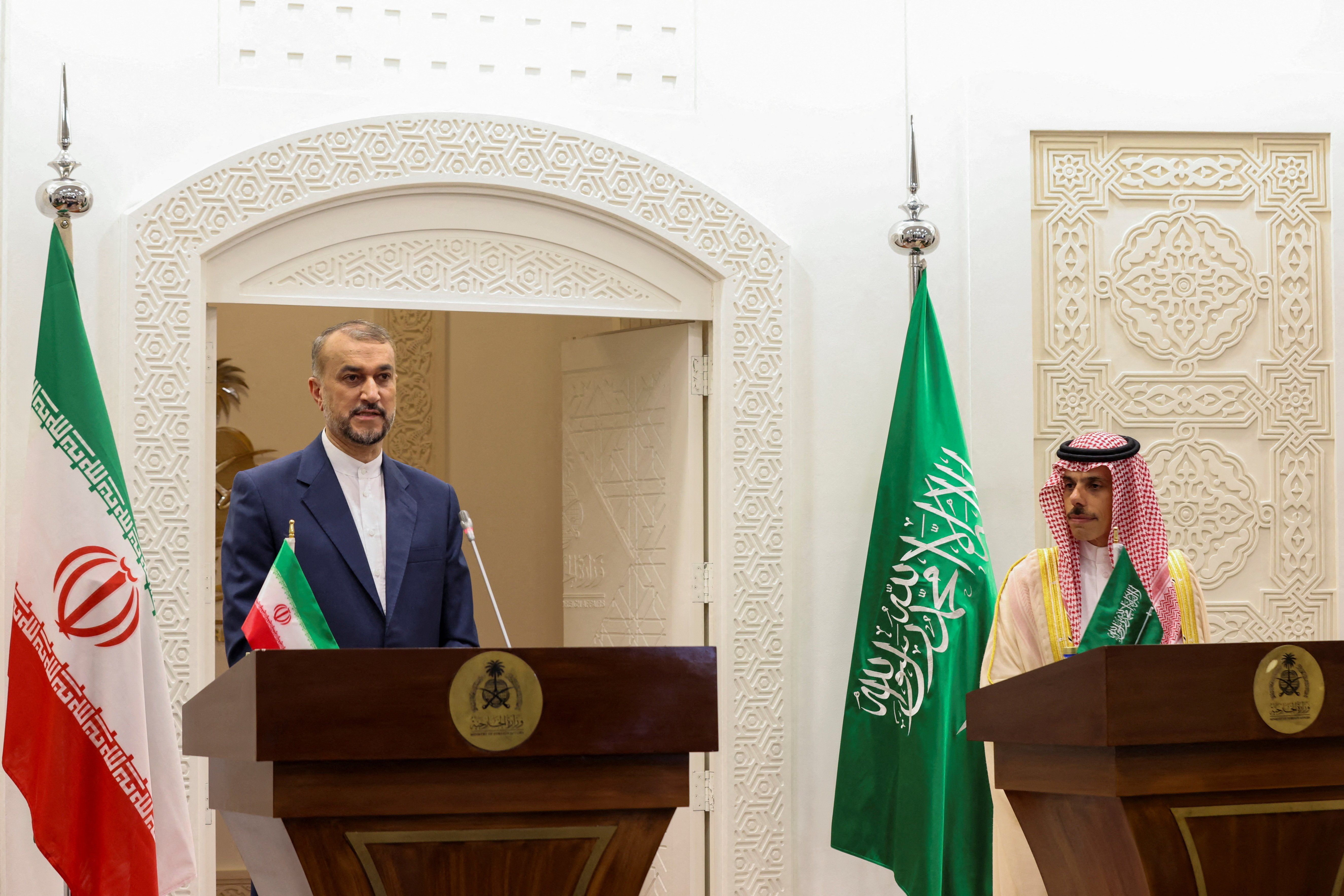As diplomatic thaw continues, Saudi Arabia and Iran exchange ambassadors
The rapprochement between Saudi Arabia and Iran continued this week when the two Middle East powers exchanged ambassadors for the first time in seven years. This comes after they reopened embassies in each other's capitals over the past few months as part of a groundbreaking detente.
Quick recap: The two states had been at loggerheads for years, but things reached a nadir in 2016 after the execution of a Shiite cleric in Saudi Arabia prompted Iranian protesters to storm the Saudi mission in Tehran.
Back in March, China mediated a diplomatic breakthrough between the two forever enemies that have long been locked in regional proxy wars. It was a massive blow for the US, which is concerned about China’s growing clout in the region – at its expense.
Some takeaways: This move suggests that the two sides are committed to moving relations along – even if trust remains limited and the Saudis don’t appear to have much faith that Iran will change its bellicose activities in the region.
This also appears to fit in with Riyadh’s broader strategy of preempting and ameliorating regional crises – including a recent thaw with Bashar Assad in Syria and a potential one with Israel – to lure the investment needed to diversify its economy away from hydrocarbons under its Vision 2030 economic agenda.
